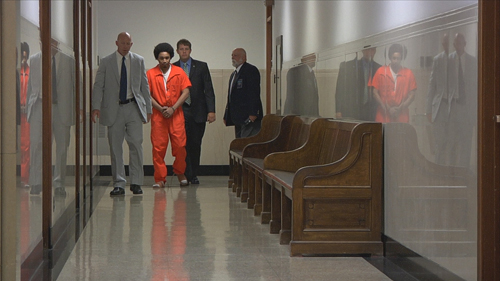Every Friday, six to 15 students congregate in Portland State’s Smith Memorial Student Union building to talk about America’s drug policy. For an hour, ideas are shared, opinions discussed and guests present talks about the current drug laws.
Rethinking the war on drugs

Every Friday, six to 15 students congregate in Portland State’s Smith Memorial Student Union building to talk about America’s drug policy. For an hour, ideas are shared, opinions discussed and guests present talks about the current drug laws.
This weekend, however, these students will branch out in their biggest event thus far and invite the greater Portland community to join them in discussion.
On Friday and Saturday, Students for Sensible Drug Policy will host its inaugural Drug Policy Film Festival in order to further educate the public about current drug policies and their consequences.
Both days will include the screening of a documentary, a guest speaker and a viewing of a feature film. The first day will feature a screening of Eugene Jarecki’s The House I Live In followed by guest speaker and assistant professor of criminology and criminal justice Mark Leymon.
Leymon will guide the audience in a discussion of the criminal justice system and how drug policy is embedded within it. The film Trainspotting will conclude Friday’s events.
The following day, the festival will pick up with a showing of The Union. Shortly after, Director of Student Legal Services Lissa Kaufman will explain the variety of legal services available to students at PSU.
The festival will conclude with a screening of Richard Linklater’s adaptation of Phillip K. Dick’s A Scanner Darkly.
Junior Romain Bonilla, a communications major and one of the leading players in the creation of the film festival, explained the motives behind the event.
“[F]irst off, it’s part of our mission to educate the public and to educate about drug policy issues,” he said. “Movies are great because it’s a pretty social event that keeps the educational factor on education policy. The idea is to educate the public and to start a discussion on the drug policy issue.”
Planning for the event began in January and, according to Bonilla, the organization had many films to choose from. After allowing voters to pick the movies through a Facebook poll, the two documentaries and two films chosen were arranged to enhance the messages of the others.
Khephran Heru-Ra-Ha, a freshman majoring in sociology, elaborated on the film selections.
“They’re…informational films. Two of them are theatrical films and two are documentaries,” Heru-Ra-Ha said. “SSDP is committed [to] finding alternatives to the drug war, so by showing these movies we try to help people think of alternatives to the drug war and look at the failings of it and look to change the way drug users are dealt with.
“I really like Trainspotting as a movie just because it really accurately portrays drugs,” Heru-Ra-Ha continued. “Out of the documentaries, I really like The Union because it got me educated and it was one of the first drug films I ever watched, so it changed my view on how drugs are being handled.”
The speakers were also carefully selected for their ability to best inform and motivate the audience about drug policy. Heru-Ra-Ha believes the day’s themes will be tied together by the films, the criminal justice seminar, the discussion of drug policy and the presentation by SLS.
“I think [the speakers will] help provide talking points around the films, so people will be able to think more critically about what they just watched and it will also help to dive into the Portland community and the Portland area to see how the topic affects people,” Heru-Ra-Ha said. “I’m really happy that we have experts that are coming to talk about the films as sort of a broader movement and the struggle going on with it.”
The importance of the drug policy topic also lies in the larger role its consequences play in everybody’s daily lives, according to Bonilla.
“The discussion has already started—even President [Barack] Obama has admitted that there is a serious national conversation…about marijuana policy and there is a huge criminal justice system that is mostly growing with drug users,” Bonilla said. “The biggest thing we’re discussing is that students need to get involved and informed about the consequences of this issue.
“These are certain issues that make you rethink what we should do with our policies,” Bonilla said. “Why should people care? There are people being mistreated in an oppressive system. This is something that is ruining lives. This is how our tax money is being spent. It’s spent on policies that don’t work for the American public.”






